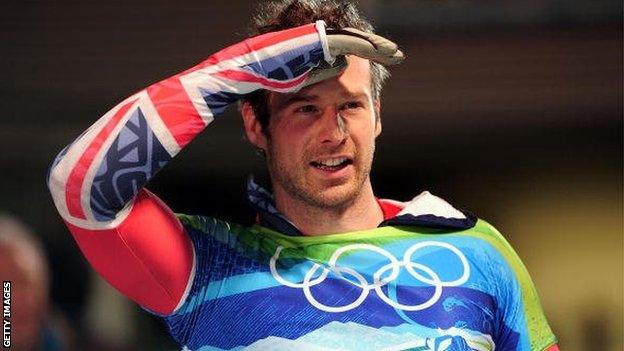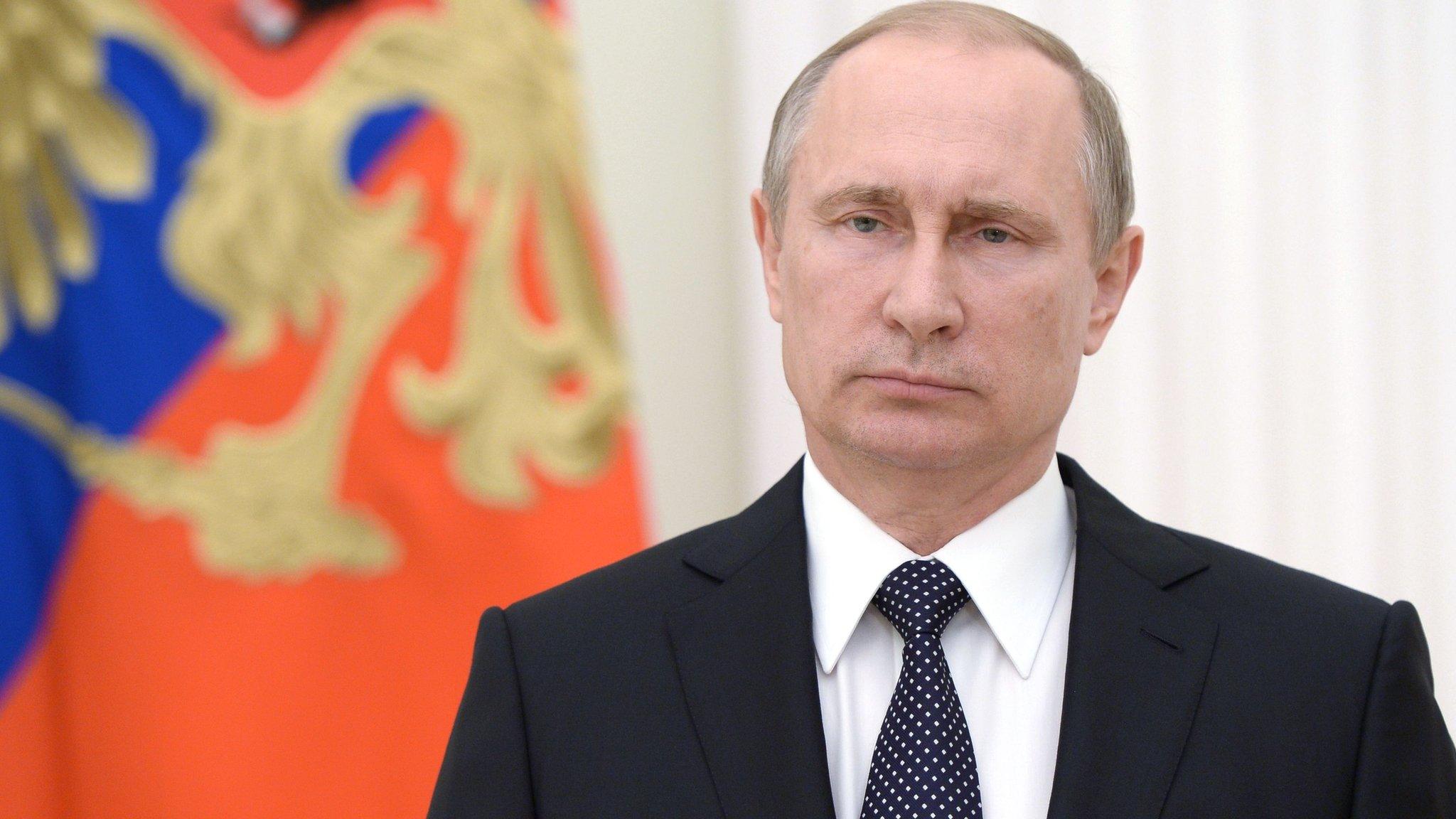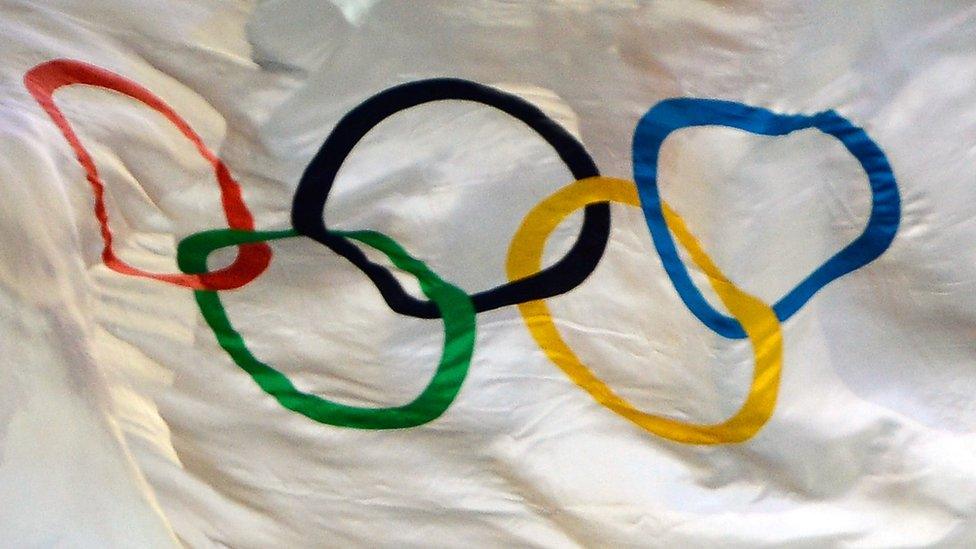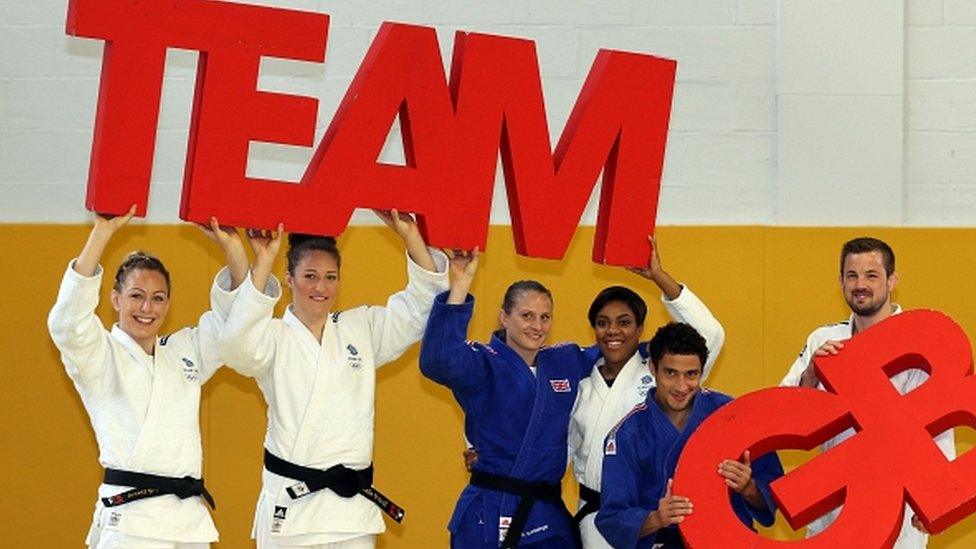Rio Olympics 2016: Ban Russia from Games, says British IOC member
- Published

Pengilly was eighth in the skeleton at the 2006 Winter Olympics and 18th at the 2010 Games
Russia should be banned from Rio 2016, says British International Olympic Committee member Adam Pengilly.
The two-time Olympian, 38, told BBC Sport the country must be punished over its ongoing doping crisis.
"The scale, co-ordination and leadership of a doping system like this is arguably the most heinous crime possible against the Olympic movement," said the former skeleton racer.
"So, somewhat reluctantly, I am led to one conclusion: exclusion from Rio."
Olympic stars sign letter urging Rio ban
Many Great Britain Olympic and Paralympic stars have endorsed a letter, external sent by The Times to the IOC urging the organisation to ban Russia from Rio.
The signatories include swimmer Rebecca Adlington, 400m hurdler Sally Gunnell, long jumper Lynn Davies and 11-time Paralympic gold medallist Baroness Tanni Grey-Thompson.
The letter, which was organised by the newspaper, has been sent to the IOC's executive board, which will make the decision on whether to have a blanket ban on Russia's participation.
The International Association of Athletics Federations (IAAF) has already excluded Russia's track and field team from the Games.
Russian flag 'should not be flown' at Rio
Pengilly, a member of the IOC's Athletes' Commission and one of four British IOC members, conceded: "I say reluctantly [that Russia should be banned] because there are very probably clean Russian athletes, and they will suffer, and this is nothing short of terrible.
"It's an incredibly tough decision. There's no fair outcome for everyone."
But he insisted: "The Russian flag should not be flown at the Rio Olympic Games."
In 2013 Pengilly received praise for raising the issue of doping before the vote to decide a host of the 2020 Games, questioning both Spain and Turkey during their bid presentations in Buenos Aires.
Russia could face a blanket ban after a damning report compiled by Canadian law professor Richard McLaren claimed it operated a state-sponsored doping programme from 2011 to 2015.
The IOC is exploring "legal options" before deciding whether to implement "a collective ban" on all Russian competitors for the global showpiece, which starts on 5 August.
A decision by its executive board could come on Sunday.
"Clean athletes, the Olympic Games and the wider Olympic movement have been mocked," Pengilly said.
"However, Russia is an important sporting nation - we want and need them fully involved in the future, but only when they can do it cleanly.
"Therefore, I firmly believe that we should offer support and assistance to the Russian Federation so they can escape from this ugly culture and cycle."
Has the IPC been naive?
Russia will find out in August if it is to be banned from the 2016 Paralympics in Rio.
The International Paralympic Committee (IPC) has "opened suspension proceedings" following the publication of the McLaren report earlier this week.
Paralympian David Weir has accused the IPC of being "naive" in their handling of doping allegations.
The wheelchair athlete, who won four golds at London 2012, told BBC Sport: "It looks like they are being naive and maybe thought that Paralympians don't cheat, but they are all public funded and there are sponsors so if you want that margin gain maybe you will cheat.
"The IPC should have put their foot down straight away."
'Collective punishment unacceptable'
Former Soviet president Mikhail Gorbachev said he was "saddened" by the "unacceptable" prospect of a total ban on Russian competitors.
Gorbachev, the last General Secretary of the Soviet Union before its dissolution in 1991, has written an open letter to the IOC.
In it, he said: "I support the fight against prohibited substances in sport. It is evil that must be eradicated. Those athletes who are proven to have doped should be banned from competitions.
"At the same time, I am concerned and deeply saddened by the possibility that in case all Russian athletes are banned from competing in the Olympic Games, the innocent will be punished together with the guilty."
- Published22 July 2016

- Published22 July 2016

- Published19 July 2016

- Published19 July 2016

- Published13 May 2016
